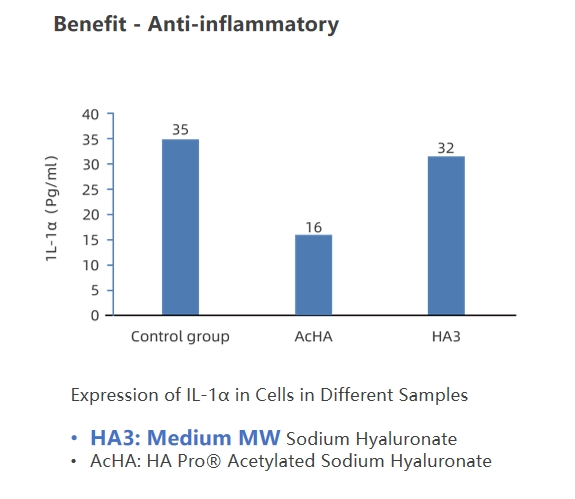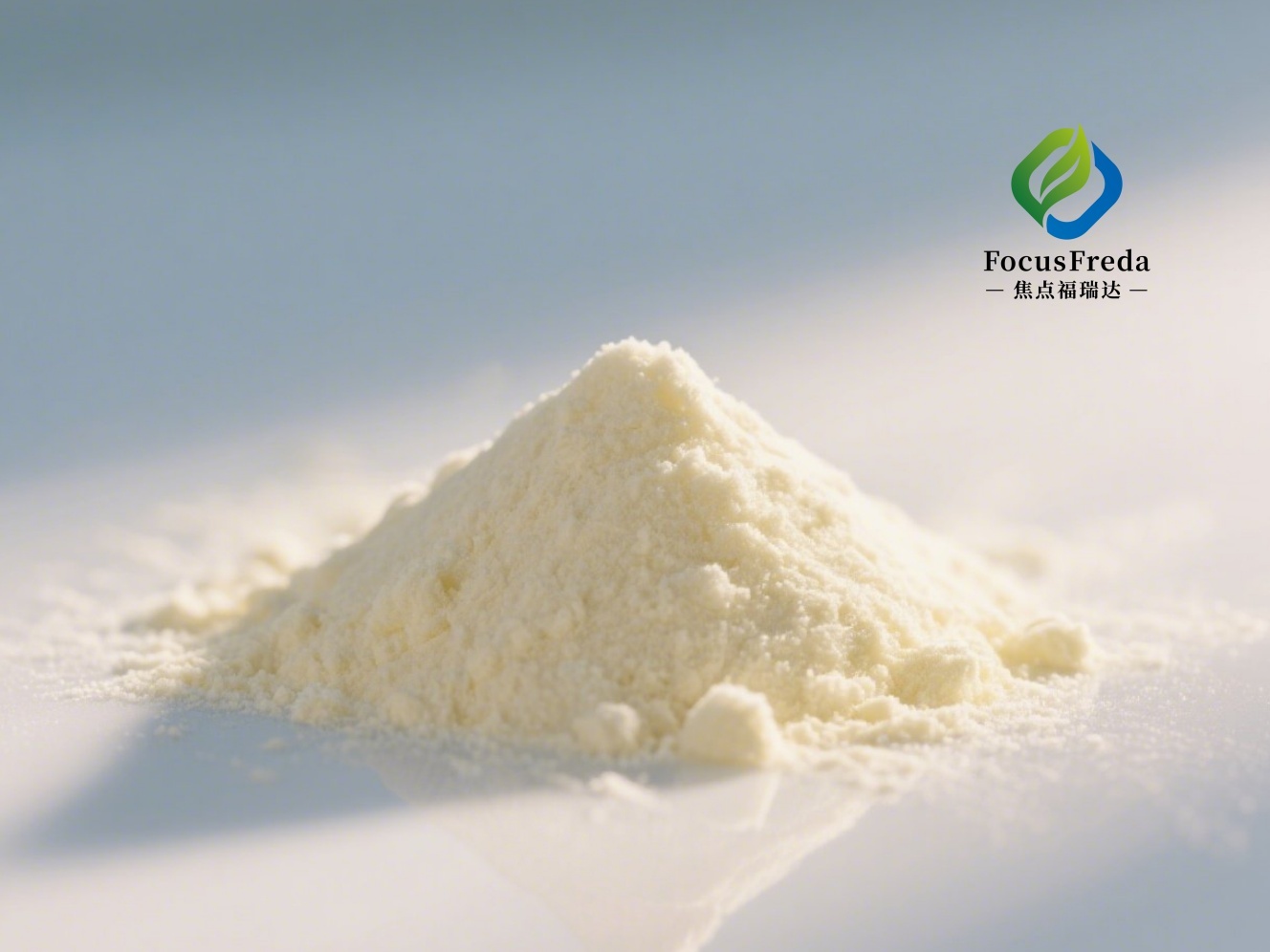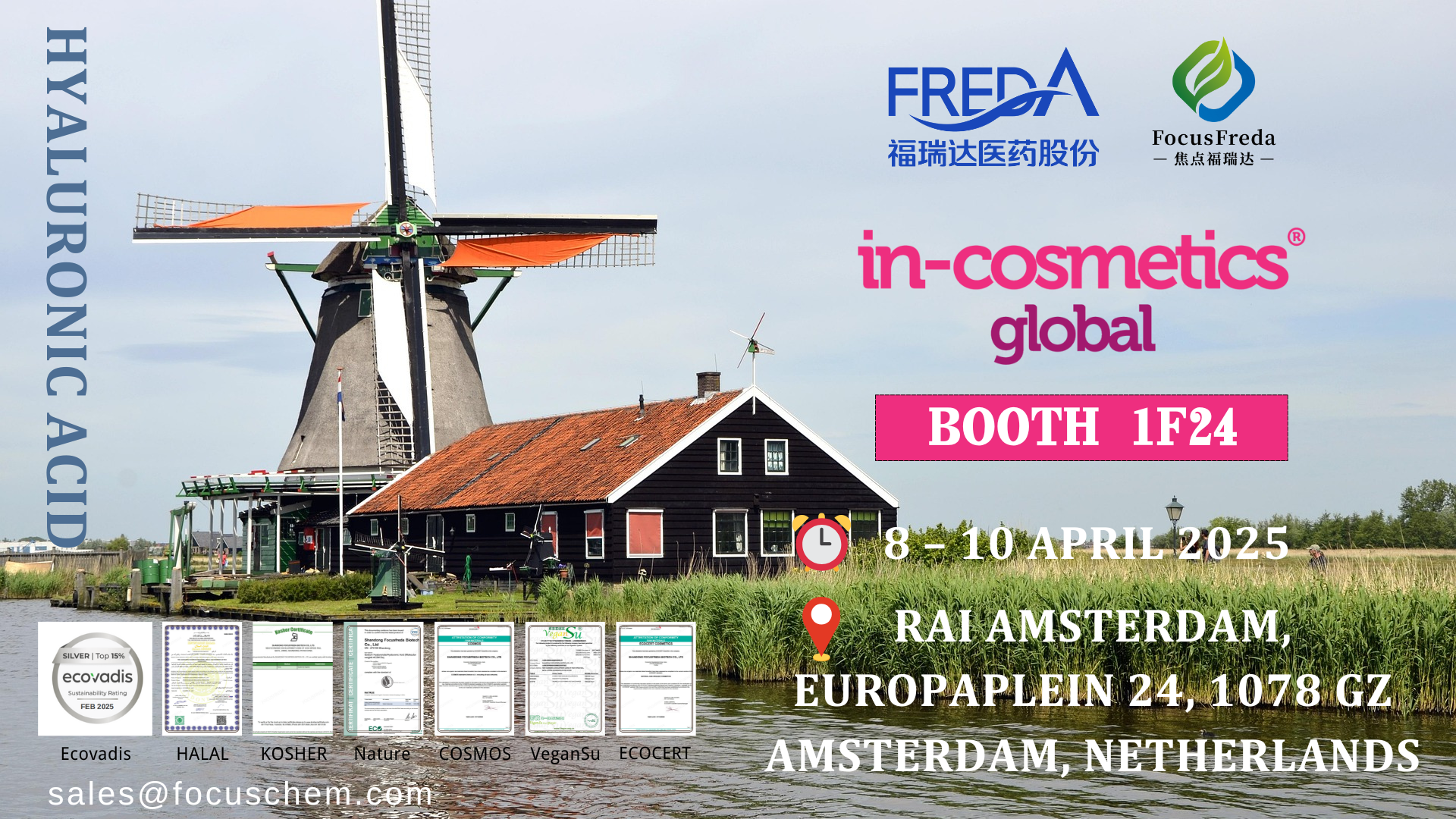Is Sodium Hyaluronate Anti-inflammatory?
Release time:
2024-11-14
Sodium hyaluronate, also called hyaluronic acid, is well-known for its remarkable hydration capabilities, which makes it a favorite ingredient in skincare. However, recent advancements are revealing additional benefits beyond its moisturizing prowess, particularly in anti-inflammatory applications. As skincare demands evolve, Focusfreda is expanding the functional scope of sodium hyaluronate by enhancing its anti-inflammatory properties, presenting it as a multifaceted solution for skincare formulations.
The Anti-inflammatory Potential of Sodium Hyaluronate
Inflammation is a common concern in skin health, often linked to irritation, redness, and conditions like acne and dermatitis. Sodium hyaluronate shows promise in combating these issues by potentially reducing inflammatory markers in skin cells. Studies indicate that sodium hyaluronate can reduce the expression of interleukin-1 alpha (IL-1α), an inflammatory cytokine. The accompanying chart shows a significant reduction in IL-1α levels when Acetylated Sodium Hyaluronate (ACHA) is applied, compared to the control and traditional sodium hyaluronate. This suggests that acetylated versions of sodium hyaluronate could be even more effective in reducing inflammation.

HA Pro®: Acetylated Sodium Hyaluronate for Enhanced Benefits
Focusfreda' s HA Pro® Acetylated Sodium Hyaluronate is a breakthrough in skincare. By grafting acetyl groups onto part of the hydroxyl groups of sodium hyaluronate, this modified ingredient gains both hydrophilic and lipophilic properties. This dual nature allows HA Pro® to penetrate skin layers more efficiently, enhancing its moisturizing and anti-inflammatory effects.
The benefits of HA Pro® extend beyond hydration and inflammation control. This advanced ingredient also provides antioxidant protection, promotes skin elasticity, repairs the keratin barrier, and softens rough, dry skin. Its unique structure ensures a lightweight, non-sticky feel, making it ideal for use in a wide range of cosmetic applications, from serums to masks, creams, and lotions.
Why Anti-inflammatory Sodium Hyaluronate is Gaining Market Interest
As consumers increasingly seek multifunctional skincare solutions, ingredients that address both hydration and inflammation are gaining traction. Sodium hyaluronate, especially in its acetylated form, fits this demand, making it highly desirable in formulations aimed at sensitive, acne-prone, or aging skin. With anti-inflammatory properties, it offers a gentle, non-irritating solution for calming the skin, which can be particularly beneficial in products designed for daily use.
Practical Applications and Product Formulation
HA Pro® Acetylated Sodium Hyaluronate is a versatile ingredient that can be easily incorporated into various formulations. It appears as a white crystalline powder and is highly soluble in water, allowing for straightforward inclusion in the water phase of formulations. The recommended usage concentration is 0.01%–0.1%, which provides a significant impact even at low doses, making it an efficient choice for cosmetic manufacturers.
Its non-sticky and refreshing feel on the skin ensures that it blends seamlessly into lightweight products, which are increasingly popular in the cosmetics industry. Additionally, its dual moisturizing and anti-inflammatory properties make it a strong candidate for formulations targeting both immediate and long-term skin health.
Focusfreda' s HA Pro® Acetylated Sodium Hyaluronate exemplifies how sodium hyaluronate' s capabilities can be extended to meet new skincare demands. With over 30 years of expertise in sodium hyaluronate production and research, Focusfreda continues to lead the development of innovative ingredients like HA Pro®, providing more benefits for modern skincare products.

BLOGS
Focusfreda Is Excited To Exhibit At The137th Canton Fair!
FOCUSFREDA will be exhibiting at the 137th China Import and Export Fair, presenting our latest advancements in personal care ingredients, functional food-grade actives, and OEM supplement formulas.
Is it really safe to take Coenzyme Q10 every day?
Explore the efficacy and safety of Coenzyme Q10: how it supports energy metabolism, resists free radicals, and what side effects and drug interactions you need to pay attention to in daily supplementation.
Focusfreda' s most popular ingredients in 2024
Learn Focusfreda' s most popular ingredients in 2024 (based on RFQ), as well as achievements in international certifications and exhibitions, reflecting the company' s growing global visibility and strong support for product quality from customers around the world.
Not sure if you need a supplement?
Meta description: Learn to understand if dietary supplements are right for your body. Learn about common nutritional deficiencies, how to consider supplement quality, and what OEM/ODM solutions Focusfreda provides to ensure that users are nutritionally safe and scientifically reliable.
Focusfreda in April: International Journeys, Stronger Bonds
In April, Focusfreda's European and Asian teams strengthened their relationships with customers and demonstrated an atmosphere of innovative solidarity through exchanges at international exhibitions, company visits and seminars.
Focusfreda at In-cosmetics Global 2025: Book a meeting in Amsterdam!
The highly anticipated, annual In-cosmetics Global 2025 is almost here! This year, the event will be held in beautiful Amsterdam, the Netherlands, bringing together the world's leading innovators and formulation experts in the cosmetic ingredients industry.








